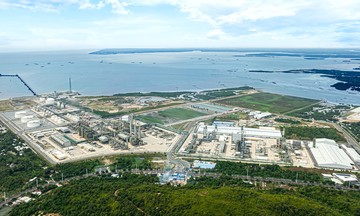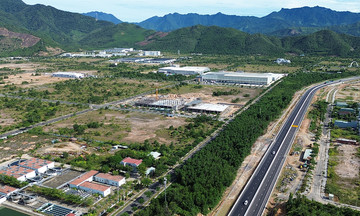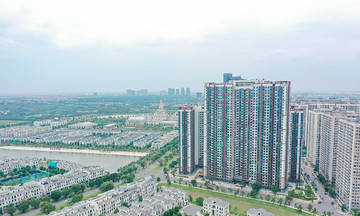According to data released by the National Bureau of Statistics of China on 15/8, new home prices decreased by another 0.3% in July. Compared to the same period in 2024, this represents a 3.4% decrease. New home prices in China have been declining year-on-year since 4/2022.
Home prices in four first-tier cities in the world's second-largest economy fell 0.2% in July compared to the previous month. In two major southern cities, Guangzhou and Shenzhen, prices dropped 0.3% and 0.6% respectively in the previous quarter. In Beijing, July prices remained unchanged. Shanghai bucked the trend with a 0.3% increase.
In the secondary real estate market, July sales decreased by 0.5% compared to June. Compared to the same period last year, existing home prices in China fell by 5.9%.
Since 9/2024, China has introduced a series of measures to support the housing market. Earlier this month, Beijing authorities unexpectedly eased home purchase restrictions in suburban areas.
Analysts believe this move could pave the way for similar measures in Shanghai and Shenzhen. Other stimulus packages include interest rate cuts and reduced down payment ratios. Banks are also encouraged to provide capital to developers with projects on the "white list".
However, demand in China's housing market remains subdued as consumers are increasingly cautious and prioritize saving over buying homes. Consequently, difficulties for developers persist following the liquidity crisis that began in late 2020.
China Evergrande, formerly mainland China's largest real estate developer, announced it will delist its shares from the Hong Kong market this month, nearly four years after defaulting on its debt. Country Garden, Sunac, and Vanke continue to struggle with heavy debt burdens.
The number of cities recording falling home prices in July increased to 60, up four from June. Yan Yuejin, Deputy Director of the E-House China Research and Development Institution in Shanghai, said that in addition to seasonal factors – July is typically a slow period for transactions – this trend also reflects a significant drop in home buying demand.
The pressure on China's real estate market comes as several other economic indicators are also losing momentum. Domestic consumption is weakening, and trade tensions with the US continue. In July, retail sales in the country increased by 3.7% year-on-year, but this was below forecasts and down from the 4.8% growth in June. Industrial output grew by only 5.7%, the lowest since last November.
Tu Anh (SCMP)












